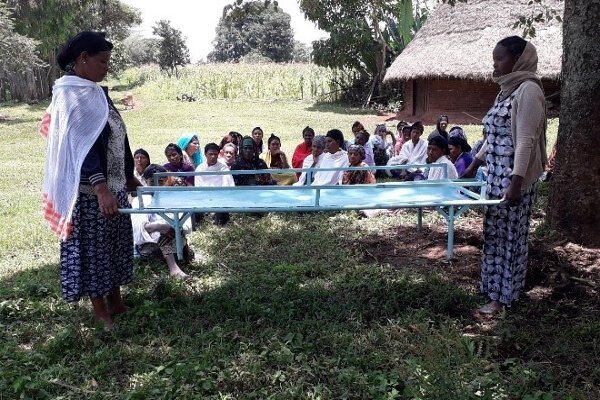Combating Complications during labour and delivery in Goro Woreda, Ethiopia
Complications, such as long lasting labour, bleeding and hypertension, are commonly experienced by mothers have led to future sexual and reproductive health problems and even death.
Records for the project show almost 250 referrals in just 3 years due to these complications.
The groups identified the following solutions to help minimise risks:
Improving uptake of antenatal care
Before the project began, only 53% of pregnant women attended the recommended 4 or more antenatal care sessions. Many women only reported their pregnancy in the third trimester.
There has been a positive shift in increased uptake by 14%, resulting from awareness raising activities from the groups, developed with health workers. A group supervisor says, “If a pregnant woman does not go to antenatal care this is discussed during the meeting, to understand why the woman is reluctant to go.”
2. Improving uptake of skilled delivery
In Ethiopia only 28% of births are delivered by a skilled birth attendant. In the women’s health group project area, this has increased by 13%. Group members conveyed the benefits of skilled birth delivery, discuss and increase knowledge of danger signs during labour and address myths and concerns about giving birth in health facilities.
One group member says, “Many mothers were dying at home because of retained placenta or as a result of prolonged labour. Now mothers know about the importance of skilled delivery and know how to ask for help.”
3. Improving access to health facilities
For many women there is a long distance to the nearest health centre, meaning those who want to give birth at a facility face difficulty. Many groups have made a stretcher to help women get to health facilities in case of an emergency. These stretchers have also improved access to ambulances, as women can be carried to their nearest road. A group leader says, “The community contributed towards the cost through setting up a savings group and gaining support from other members.”
This ongoing work will help save lives, enabling more women and children in the Goro Woreda to survive and thrive.

